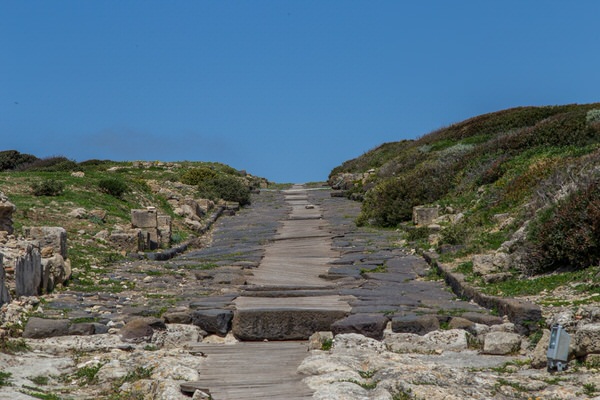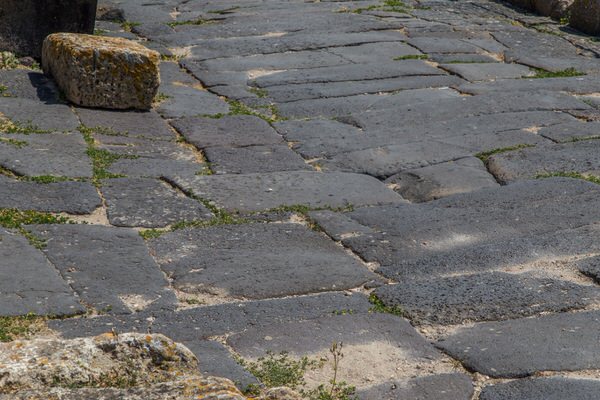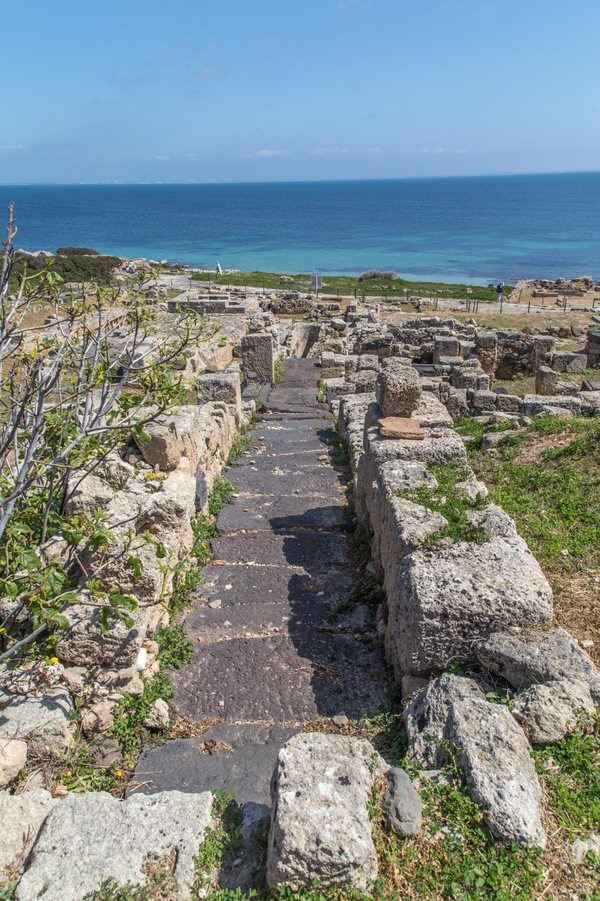The Roman roads
During the Roman Empire Era, the city enjoyed a network of paved roads, often with basalt that covered an efficient sewer system dug into the rock beneath (figs. 1-4).




The basalt slab paving of the roads is extremely accurate, and seems to have been carried out all at the same time, as a general refurbishment of the urban centre, repairing and improving the already existing roads. We cannot be sure when this took place, but the comparison with Nora, where a similar work has been found and dated, brings us to believe that this work was also carried out in Tharros between the 2nd and 3rd century A.D.

The main roads of Tharros, which were three-five metres wide, divide the city into large quarters, while the division into smaller blocks is due to small, narrow roads called ambitus that are no more than one metre wide (fig. 6).
These small alleys also have sewers when on the hill slope, which drained into the sewers on the main roads, that then took the waste water out to sea.

Bibliografia
- M. MARANO, L’abitato punico romano di Tharros (Cabras-OR): i dati di archivio, in A.C. FARISELLI (ed.), Da Tharros a Bitia. Nuove prospettive della ricerca archeologica, Bologna 2013, pp. 75-94.
- C. MAZZUCATO, A. MEZZOLANI, A. MORIGI, Infrastrutture idriche a Tharros: note sul sistema fognario, in E. ACQUARO ET ALII (edd.), Tharros Nomen, La Spezia 1999, pp. 117-133.
- G. PESCE, Tharros, Cagliari 1966

 VR
VR